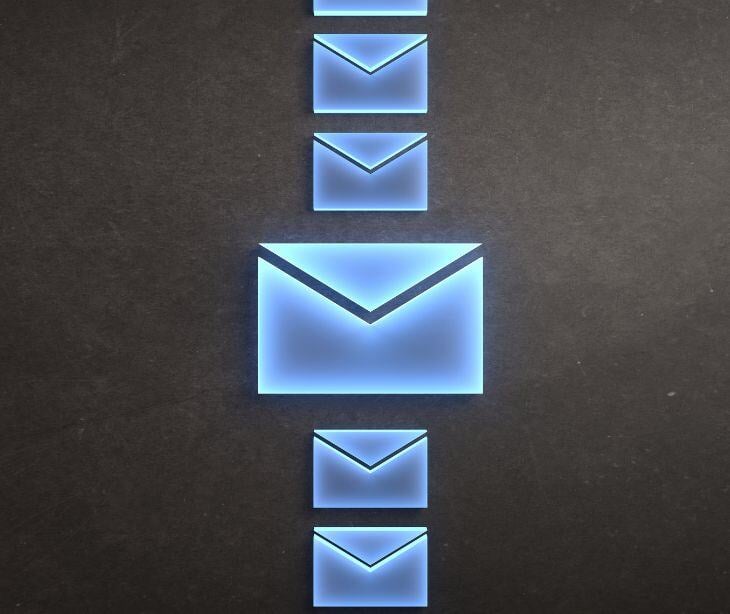
A HIPAA compliant email serves as a tool for healthcare providers to safeguard sensitive information related to patient care and trust. From patient names to genetic results, HIPAA compliant email services incorporate encryption, access controls, audit trails, and other security measures to safeguard this information.
Types of information protected by HIPAA compliant email
According to the HHS, “the Privacy Rule allows covered health care providers to communicate electronically, such as through e-mail, with their patients, provided they apply reasonable safeguards when doing so.” So what information can be communicated electronically and be protected by HIPAA?
Protecting patient identifiable information
One of the primary responsibilities of a HIPAA compliant email service is to secure any information that could be used to identify a patient. This includes:
- Name: Even partial names can be considered PHI if they are linked with other identifying information.
- Social Security Number: A unique and highly sensitive identifier that requires stringent protection.
- Medical record numbers: These unique identifiers within healthcare systems are directly linked to individual patients.
- Email addresses: When connected with health information, patient email addresses are classified as PHI.
- Phone numbers: Contact information that, when associated with health details, falls under HIPAA protection.
Go deeper: What is personally identifiable information (PII)?
Safeguarding health information
PHI encompasses a broad range of health-related data, all of which must be protected:
- Medical history: Details of past or current health conditions, surgeries, or treatments.
- Diagnosis and treatment information: Information on a patient’s medical diagnoses and the treatments they receive.
- Lab results: Laboratory findings, from blood tests to genetic screenings, contain valuable health data.
- Prescriptions: Details about prescribed medications, including dosages and schedules.
Securing billing and payment information
Financial information tied to medical services is another key area of protection under HIPAA:
- Insurance details: This includes provider information, policy numbers, and coverage details.
- Billing records: Invoices, payment records, and any financial transactions related to healthcare services are PHI.
- Financial account numbers: Bank account or credit card numbers used for medical payments must be secured.
Related: Healthcare billing using HIPAA compliant email
Ensuring the privacy of appointment information
Even the details surrounding patient appointments fall under HIPAA regulations:
- Scheduling details: Dates, times, and locations of medical appointments must be kept private.
- Appointment reminders: Emails or texts that remind patients of upcoming appointments should be HIPAA compliant to avoid exposing sensitive information.
Read also: Are appointment reminder emails HIPAA compliant?
Protecting communications and correspondence
HIPAA compliant email services also protect the content of communications between healthcare providers and patients:
- Doctor-patient communications: Discussions of health concerns, treatments, or follow-up care are all considered PHI.
- Referral information: Information related to referrals to specialists or other healthcare providers must be protected.
- Consultation reports: Written summaries of medical consultations contain sensitive health information.
Securing photographs and medical imaging
Images related to a patient’s health are also considered PHI:
- Patient photos: Any photographs of a patient that are part of their medical record need to be secured.
- X-rays, MRIs, and CT scans: These digital images contain detailed information about a patient’s health and require strong protection.
Protecting genetic information
With advancements in genetic testing, the protection of genetic information has become increasingly important:
- Genetic testing results: These results can reveal predispositions to certain health conditions and must be securely stored and transmitted.
Securing other sensitive information
Finally, HIPAA compliant email services help protect a variety of other sensitive information:
- Legal documents: Documents like power of attorney or consent forms contain personal information that must be protected.
- Advance directives: Details regarding a patient’s end-of-life care preferences must be kept confidential.
HIPAA compliant email services
Paubox Email Suite is an excellent choice for a HIPAA compliant email service, offering a seamless and secure solution tailored specifically for healthcare providers. Unlike traditional email services, Paubox integrates HIPAA compliance directly into its platform, eliminating the need for additional encryption steps while ensuring that every email sent is fully protected. This simplicity doesn’t come at the cost of security—Paubox uses encryption, which means that emails are automatically encrypted from the moment they leave your inbox until they reach the recipient. Additionally, Paubox is designed to work with existing email platforms like Gmail and Office 365, making it easy to implement without disrupting your current workflow.
With features like email tracking, audit trails, and secure file sharing, Paubox meets HIPAA requirements, allowing healthcare providers to focus on patient care while maintaining the highest standards of data security.
FAQs
What is HIPAA?
The Health Insurance Portability and Accountability Act (HIPAA) is a U.S. law enacted in 1996 to ensure the protection of sensitive patient information. It sets national standards for the security, privacy, and integrity of protected health information (PHI) when it is stored, transmitted, or handled by healthcare providers, insurers, and their business associates.
What is protected health information (PHI)?
Protected health information (PHI) refers to any information in a medical record or designated for healthcare purposes that can be used to identify an individual. This includes a wide range of data, such as patient names, addresses, social security numbers, medical histories, diagnoses, treatment information, and billing details. PHI can be in any form—electronic, paper, or oral.
How does HIPAA protect this information?
HIPAA protects information through a combination of privacy and security rules. The Privacy Rule limits the use and disclosure of PHI, ensuring that patient information is only shared with authorized individuals or entities. The Security Rule requires the implementation of administrative, physical, and technical safeguards to protect electronic PHI (ePHI) from unauthorized access, breaches, and other risks.
Subscribe to Paubox Weekly
Every Friday we'll bring you the most important news from Paubox. Our aim is to make you smarter, faster.



